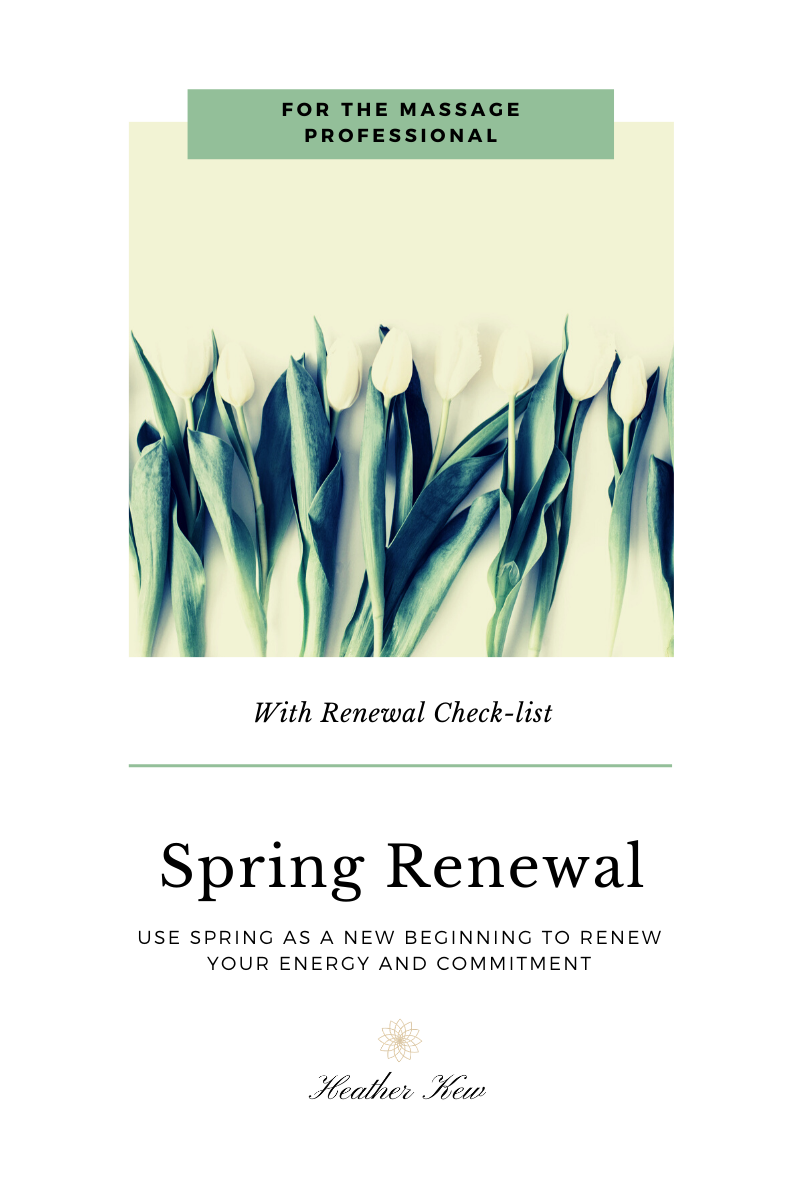
I once heard an old saying that went something like this:
“Put one door-to-door salesman in a town and he will starve. Put 5 door-to-door salesmen in the same town and they will flourish” – Author unknown
While it may seem slimy to be checking out your competition, it is in fact the exact opposite. Keeping up with what’s going on in your market is an important part of your business. By understanding what sets you apart from your competition will not only help your business thrive but help your competition too.
Before I dive deep into market research, lets first talk about competing in your market with integrity. Being in competition with another Massage Therapist or Business does not mean that you wish they do poorly or wish any ill will towards them. If you feel negatively about another business/person just on the basis that you are in competition with them, you need to work on your mind set. If you and your competition both have great businesses, it is in BOTH your interests that you do well. The better the industry is, the greater the demand. And the opposite is true as well – if your competition is hurting the image of your industry – there is a good chance that those unhappy customers won’t come back for massage period – no matter who it is – and will speak negatively about massage in general. It is so important to your image to remain neutral towards your competition. If clients ask me about my competition – I try and answer honestly but neutral. I say things such as “I’ve never been there but I’ve heard great things”, or “Sorry I haven’t heard of them before” or “Yeah, I know who you’re talking about – they’ve been over on main for years”. Staying neutral or evening paying someone else’s practice a compliment reflects better on your because it shows you are confident and professional. Speaking ill of someone else does more damage to your reputation than theirs and can land you in some hot water. If you do have negative perceptions of another business, keep it to yourself and let that business sink all on its own.
So why would you want to check out your competition? By checking out your competition you are seeing what their niche is, what their price structure looks like, what the capacity of their business is and any opportunities to work together may be. By knowing what these things are, you can make sure that your marketing and messaging stands out so that you are getting more of your ideal clients, you can make sure that you are priced where you want to be in your market, you can see if there is room to expand based on if you and your competition are both really busy and working together is always better than working alone.
Rarely are two businesses going to have the exact same niche. Often, your niches may overlap, but there will be enough of a difference that your messaging will be different and will reach your audience differently. We often have this mindset that as Massage Therapists, our clients will only come see one Massage Therapists for all their needs. This doesn’t need to be true. As Massage Therapists we all take different continuing education and branch out into different modalities. I have clients that come see me for cupping therapy and orthopaedic massage but see someone else for their hot stone massage or their pre-natal massage. This does not threaten my practice in any way, shape or form – and in fact I have a few massage therapists that refer to me when they have clients that don’t mesh well with their style of treatment.
The capacity of your competition will tell you a few important details of their business. If a practice has a small capacity and they are very hard to book into – this is great news for you. New clients may not want to wait that long to see them and will spill over into your practice. If they have a large capacity and are not very booked up – it may mean they are struggling and will be doing more to push their marketing. This may be tricky for you because it means you may have a harder time with your marketing being seen. Seeing what services their practice offers that differs from yours – like it they offer more spa services or have other professionals that they work with, is also good to know. This can lead into how you can work together – whether if be through a referral agreement, doing community work together such as sporting events or community fundraising or even some social media collaboration. If your competition is open to it, it may even just be sitting down for coffee together to talk about common concerns in your area or sharing resources such as policies and procedures. Being friendly with your competition never hurts and can help strengthen your reputation in your area.

Last, and certainly not least, is comparing pricing. Doing your market research on your competition to see what they are charging, if their pricing is a one-price-includes-everything, or if they have upsells and where you feel you should be in comparison to them is important. I never encourage Massage Therapists undercut the market or be the most expensive in their market unless there is good reason. For example – if you are still a student and are getting your practical hours in - your massage should not be as expensive as a fully trained, fully licensed Massage Therapists. On the other end of that spectrum – if your treatment includes every modality you offer plus years of experience and you are charging less than brand new massage therapists in your market – you need to honour your worth and charge accordingly. It also important to compare not only your prices in your own area but also your own market. Different markets charge differently -for example – Spas generally charge more for their massage treatments while physio and chiro clinics generally charge less. Also, if you work in a mountain resort area, the cost of a treatment will generally be more expensive in the tourist areas compared to the local areas. These are more guidelines than rules – some Massage Therapists charge more because they have more speciality modalities or experience. It really all boils down to what the market can bear – if your clients are willing to pay more to see you then you may be able to charge more – if your area doesn’t have as high of prices as another area – you may hear crickets in your appointment book if you charge more. Pricing does not have to be set in stone. While I don’t recommend raising your prices more than once to twice per year, most clients are very understanding of price increases. You may have a little room to experiment with your pricing your services.
A note of caution – make sure you are pricing within your market. If you price too high or too low – you can create the wrong perception for your business. If you price too low, people will believe that you are not as good as someone else who charges more. Price too high and people may assume that you offer more than you do.
I recommend doing a market research exercise every 6 months. It keeps you current on who your competition is in your area and it also ensures that your prices are inline with your market. If you’re unsure of how to do market research, I have included my Microsoft Excel Spreadsheet that I use to do my market research.









